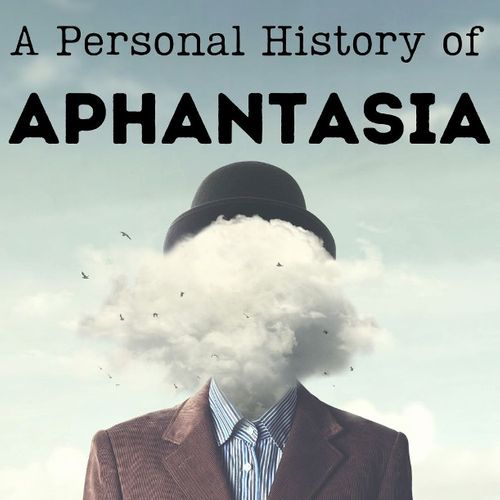A Personal History of Aphantasia
Jun 07, 2023 · 2 mins read
0
Share
350 BC: Ancient Greek philosopher Aristotle first coins the term “Phantasia”. He says, translated: “As sight is the most highly developed sense, the name Phantasia (imagination) has been formed from Phaos (light) because it is not possible to see without light.”
Save
Share
1880: Sir Francis Galton says, following a statistical study about imagination, “To my astonishment, I found that the great majority of the men of science to whom I first applied, protested that mental imagery was unknown to them.”
Save
Share
1939: The Wizard of Oz is released. As a child I will plead to watch it over and over. Eventually my dad will become so sick of it that he'll say the TV is broken; Eventually I will realize I use films to fill my brain with the beautiful images I’m unable to create.
Save
Share
1973: Psychologist David Marks creates the VVIQ, the Vividness of Visual Imagery Questionnaire, used to assess the vividness with which one can imagine in their mind's eye. (I couldn’t find a free version of this test, but a Buzzfeed quiz assessed my mental imagery as “weak”.)
Save
Share
1997: I am born in a small hospital in a small city. It’s 3 days before Halloween. I will remember very little about my childhood (enough to need therapy but not enough to write a good memoir). The memories I do retain will feel more like bullet points of facts than images.
Save
Share
2009: A 65 year old man, affectionately referred to as Patient MX, undergoes minor heart surgery. He reports afterwards that he has lost his ability to see images in his mind. Dr. Adam Zeman, a cognitive neurologist, publishes a study, in which he refers to “blind imagination".
Save
Share
2015: Dr. Zeman and his team publish a paper, first coining the phrase “aphantasia”; phantasia meaning “imagination”, derived from Aristotle’s writings, and a- meaning “not” or “without”. Aphantasia: without imagination.
Save
Share
2016-2017: I go to film school. I make short films, storyboard animations, and write screenplays. I win awards in largely unknown film festivals. I go largely into debt. I have an imagination and I do not see a single image in my head the entire time.
Save
Share
2018: Dr. Joel Peterson runs a study, concluding that aphantasia is “a condition involving a lack of mental imagery and not a lack of metacognition”. In other words, yes, those of us with brain blindness do still have the capacity for imaginings and higher thought.
Save
Share
2022: I self-diagnose. I get a headache trying to see mental images: an apple, my childhood home, my sister’s face.
A new assessment is developed: the Imagination Spectrum Questionnaire, which tests for multisensory aphantasia. (I took the ISQ online, but the results cost $20).
Save
Share
0
